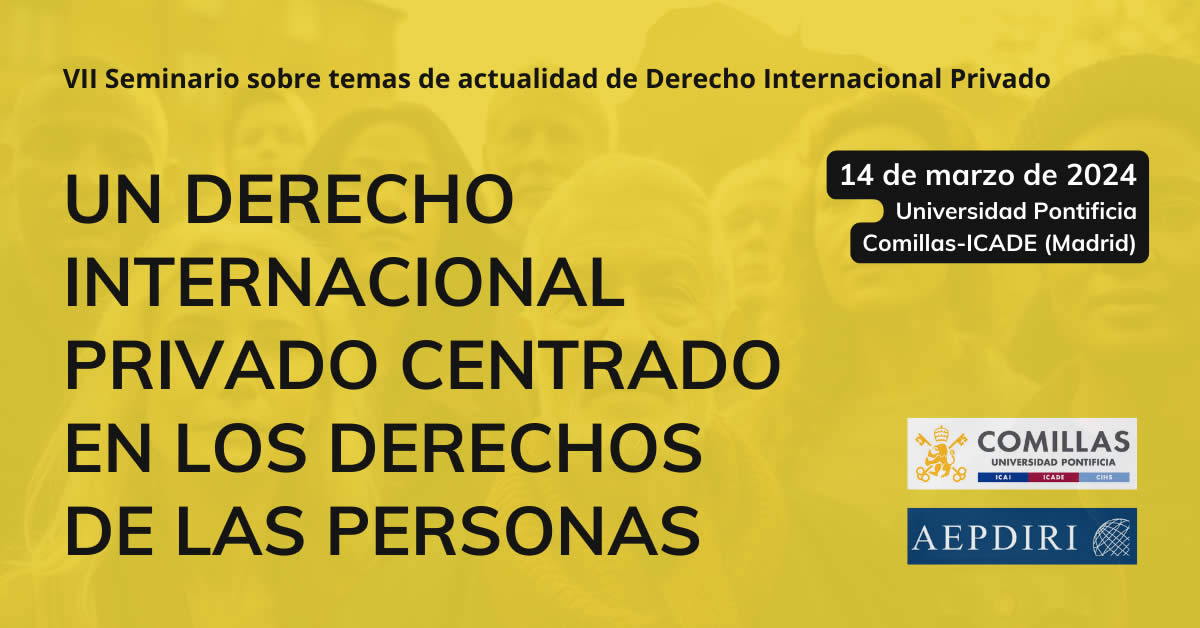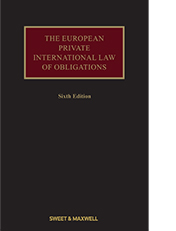Views
The CJEU renders its first decision on the EAPO Regulation – Case C-555/18
Carlos Santaló Goris, Researcher at the Max Planck Institute Luxembourg for International, European and Regulatory Procedural Law, and Ph.D. candidate at the University of Luxembourg, offers a summary and an analysis of the CJEU Case C-555/18, K.H.K. v. B.A.C., E.E.K.
Introduction
On 7 November 2019, the CJEU released the very first decision on Regulation 655/2014 establishing a European Account Preservation Order (“EAPO Regulation”). From the perspective of European civil procedure, this instrument is threefold innovative. It is the first uniform provisional measure; it is also the very first ex parte piece of European civil procedure (and reverses the Denilauer doctrine); and the first one which, though indirectly, tackles civil enforcement of judicial decisions at European level. This preliminary reference made by a Bulgarian court gave the CJEU the opportunity to clarify certain aspects of the EAPO Regulation. Read more
Ensuring quality of ODR platforms: a new (voluntary) certification scheme in France
By Alexandre Biard, Erasmus University Rotterdam (ERC project – Building EU Civil Justice)
In a previous post published in November 2018, we presented policy discussions that were (at that time) going on in France, and aimed at introducing a new regulatory framework for ODR platforms. As also explained in an article published in September 2019 (in French), ODR tends to become a new market in France with a multiplication of players offering services of diverging qualities. Today this market is in need of regulation to ensure the quality of the services provided, and to foster trust among its users. Read more
Mutual Trust v Public Policy : 1-0
In a case concerning the declaration of enforceability of a UK costs order, the Supreme Court of the Hellenic Republic decided that the ‘excessive’ nature of the sum (compared to the subject matter of the dispute) does not run contrary to public policy. This judgment signals a clear-cut shift from the previous course followed both by the Supreme and instance courts. The decisive factor was the principle of mutual trust within the EU. The calibre of the judgment raises the question, whether courts will follow suit in cases falling outside the ambit of EU law.
[Areios Pagos, Nr. 579/2019, unreported]
THE FACTS
The claimant is a Greek entrepreneur in the field of mutual funds and investment portfolio management. His company is registered at the London Stock Exchange. The defendant is a well known Greek journalist. On December 9, 2012, a report bearing her name was published in the digital version of an Athens newspaper, containing defamatory statements against the claimant. The claimant sued for damages before the High Court of Justice, Queens Bench Division. Although properly served, the respondent did not appear in the proceedings. The court allowed the claim and assigned a judge with the issuance of an order, specifying the sum of the damages and costs. The judge ordered the default party to pay the amount of 40.000 ? for damages, and 76.290,86 ? for costs awarded on indemnity basis. The defendant did not appeal.
The UK order was declared enforceable in Greece [Athens CFI 1204/2015, unreported]. The judgment debtor appealed successfully: The Athens CoA ruled that the amount to be paid falls under the category of ‚excessive‘ costs orders, which are disproportionate to the subject matter value in accordance with domestic perceptions and legal provisions. Therefore, the enforcement of the UK order would be unbearable for public policy reasons [Athens CoA 1228/2017, unreported]. The judgment creditor lodged an appeal on points of law before the Supreme Court.
THE RULING
The Supreme Court was called to examine whether the Athens CoA interpreted properly the pertinent provisions of the Brussels I Regulation (which was the applicable regime in the case at hand), i.e. Article 45 in conjunction with Art. 34 point 1. The SC began its analysis by an extensive reference to judgments of the CJEU, combined with recital 16 of the Brussels I Regulation, which encapsulates the Mutual Trust principle. In particular, it mentioned the judgments in the following cases: C-7/98, Krombach, Recital 36; C-38/98, Renault, Recital 29; C-302/13, flyLAL-Lithuanian Airs, Recital 45-49; C-420/07, Orams, Recital 55), and C-681/13, Diageo, Recital 44. It then embarked on a scrutiny of the public policy clause, in which the following aspects were highlighted:
- The spirit of public policy should not be guided by domestic views; the values of European Civil Procedure, i.e. predominantly the European integration, have to be taken into consideration, even if this would mean downsizing domestic interests and values. Hence, the court of the second state may not deny recognition and enforcement on the grounds of perceptions which run contrary to the European perspective.
- The gravity of the impact in the domestic legal order should be of such a degree, which would lead to a retreat from the basic principle of mutual recognition.
- Serious financial repercussions invoked by the defendant may not give rise to sustain the public policy defense.
- In principle, a foreign costs order is recognized as long as it does not function as a camouflaged award of punitive damages. In this context, the second court may not examine whether the foreign costs order is ‘excessive’ or not. The latter is leading to a review to its substance.
- The proportionality principle should be interpreted in a twofold fashion: It is true that high costs may hinder effective access to Justice according to Article 6.1 ECHR and Article 20 of the Greek Constitution. However, on an equal footing, the non-compensation of the costs paid by the claimant in the foreign proceedings leads to exactly the same consequence.
- In conclusion, the proper interpretation of Article 34 point 1 of the Brussels I Regulation should lead to a disengagement of domestic perceptions on costs from the public policy clause. Put differently, the Greek provisions on costs do not form part of the core values of the domestic legislator.
In light of the above remarks, the SC reversed the appellate ruling. The fact that the proportionate costs under the Greek Statutes of Lawyer’s fees would lead to a totally different and significantly lower amount (2.400 in stead of 76.290,86 ?) is not relevant or decisive in the case at hand. The proper issue to be examined is whether the costs ordered were necessary for the proper conduct and participation in the proceedings, and also whether the calculation of costs had taken place in accordance with the law and the evidence produced. Applying the proportionality principle in the way exercised by the Athens CoA amounts to a re-examination on the merits, which is totally unacceptable in the field of application of the Brussels I Regulation.
COMMENTS
As mentioned in the introduction, the ruling of the SC departs from the line followed so far, which led to a series of judgments denying recognition and enforcement of foreign (mostly UK) orders and arbitral awards [in detail see my commentary published earlier in our blog, and my article: Recognition and Enforcement of Foreign Judgments in Greece under the Brussels I-bis Regulation, in Yearbook of Private International Law, Volume 16 (2014/2015), pp. 349 et seq]. The decision will be surely hailed by UK academics and practitioners, because it grants green light to the enforcement of judgments and orders issued in this jurisdiction.
The ruling applies however exclusively within the ambit of the Brussels I Regulation. It remains to be seen whether Greek courts will follow the same course in cases not falling under the Regulation’s scope, e.g. arbitral awards, third country judgments, or even UK judgments and orders, whenever Brexit becomes reality.
News
Today the EU Digitalisation Regulation has been published – the clock starts ticking
The long-awaited Regulation (EU) 2023/2844 of the European Parliament and of the Council of 13 December 2023 on the digitalisation of judicial cooperation and access to justice in cross-border civil, commercial and criminal matters, and amending certain acts in the field of judicial cooperation (Digitalisation Regulation or e-justice Regulation) has been published today in the Official Journal of the European Union. For more information on the EU internal procedure, click here.
The Digitalisation Regulation lays down the rules for the use of electronic communication between competent authorities in judicial cooperation procedures in civil, commercial and criminal matters, and for the use of electronic communication between natural or legal persons and competent authorities in judicial procedures in civil and commercial matters (Art. 1). This is to be accomplished, in particular, through the decentralised IT system (Art. 3) and the European electronic access point (Art. 4). Read more
Call for papers: AEPDIRI Seminar in Madrid “A Private International Law centred on the rights of individuals”

The Spanish Association of Professors of International Law and International Relations (AEPDIRI) is organising its VII Seminar on current issues in Private International Law on the topic “A Private International Law centred on the rights of individuals”. The seminar will take place at the Faculty of Law of the Universidad Pontificia Comillas (ICADE) in Madrid on 14 March 2024. The working language of the Seminar will be Spanish, but papers may also be presented in English or French. Read more
BOOK REVIEW OF THE EUROPEAN PRIVATE INTERNATIONAL LAW OF OBLIGATIONS
EDITED
Sweet & Maxwell is offering a 15% discount on all orders of the book until January 31st 2024. To receive your discount on purchases of the hardback and ProView eBook versions of The European Private International Law of Obligations please visit Sweet & Maxwell’s estore and quote the discount code EPILOO23 at checkout OR call +44 (0)345 600 9355. Offer valid from 22nd December to 31st January 2024.



